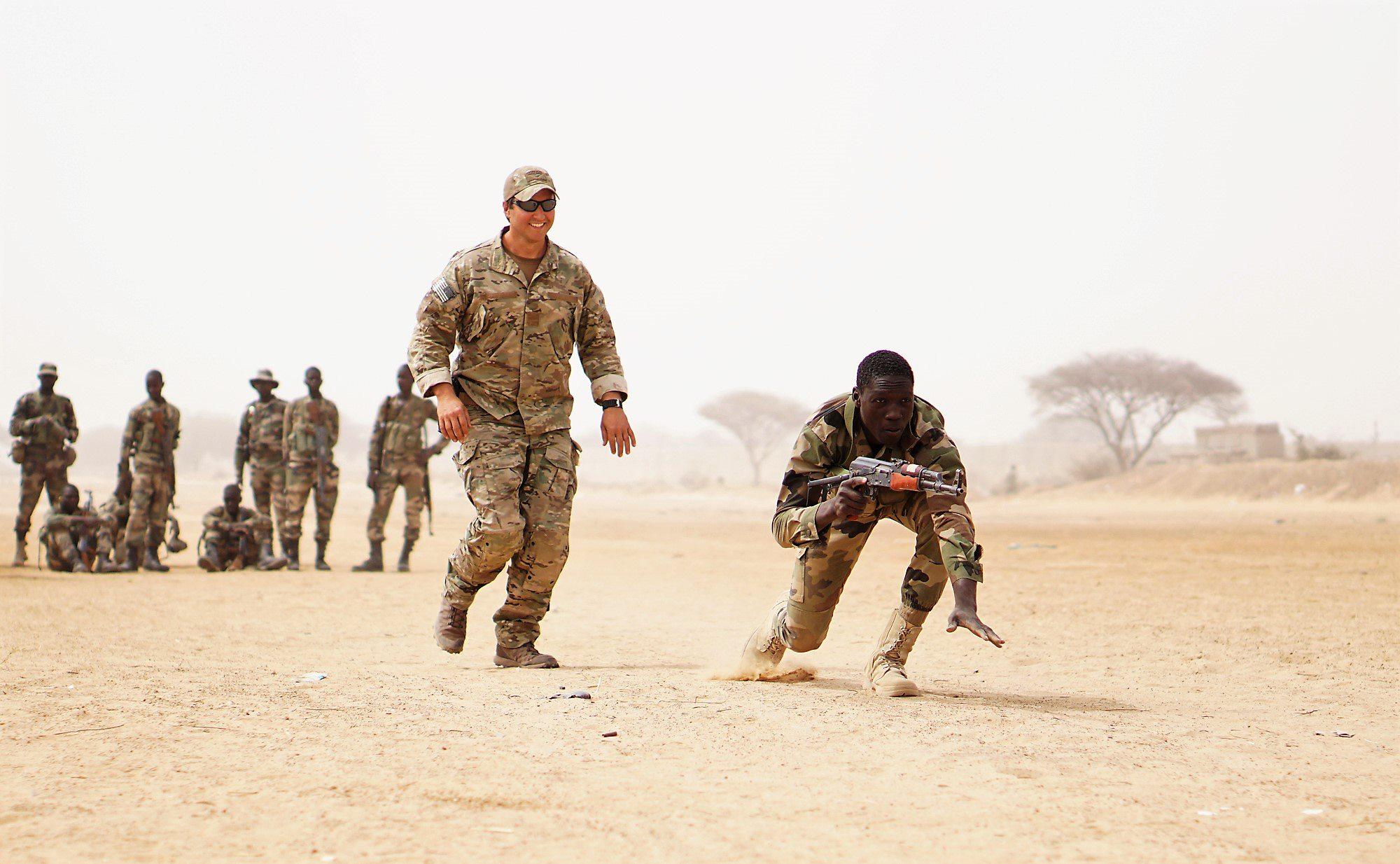
Nkrumah had envisioned the creation of an all-African military force to police the continent and protect it from outside exploiters—AFRICOM is his worst nightmare.
In early March, the U.S. Africa Command (AFRICOM) hosted a two-week training exercise called Flintlock around the Ghanaian cities of Daboya, Tamale and Volta as well as in the Ivory Coast.
More than 1,300 soldiers from 29 nations participated in the two-week event, which involved war-game simulations where soldiers fought mock terrorist forces and pirates on land and sea.
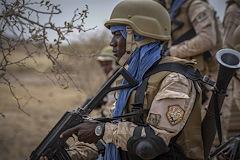
General Michael E. Langley, the AFRICOM commander, said in a meeting of the Senate Armed Services Committee that “the Gulf of Guinea is like the wild, wild West of illicit activity, especially the drug trade. We’ve had a number of countries that come together to focus on illicit activity across the Gulf, and the drug trade is one of them, smuggling is another and training citizens as well across the region.”[1]
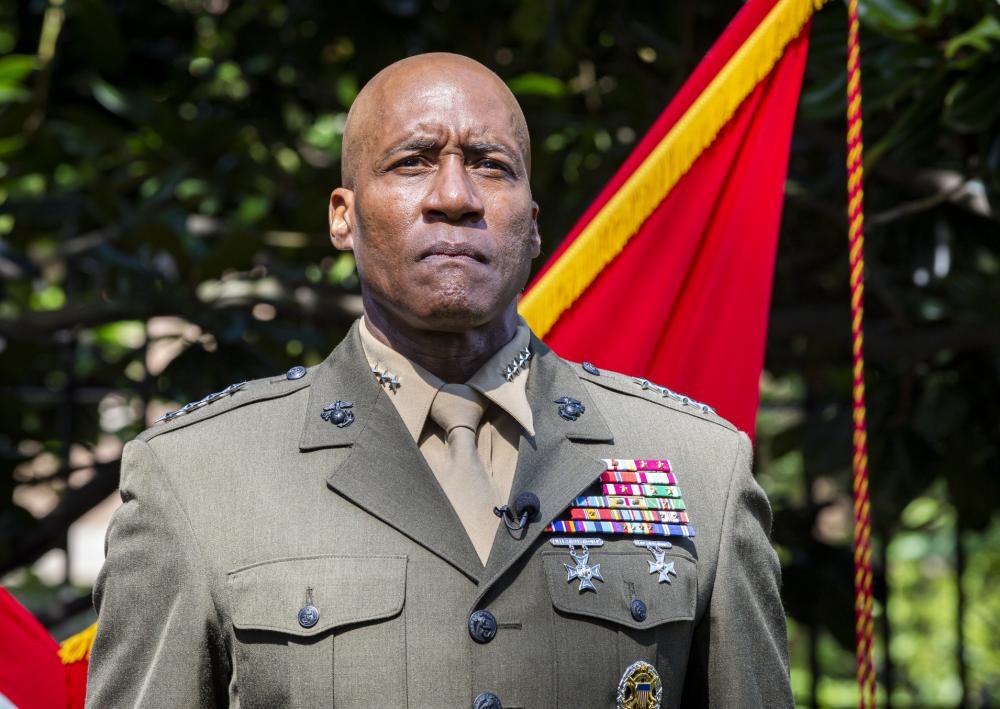
The New York Times reported that African soldiers participating in Flintlock were paired with mentors from NATO countries: The Ghanaian naval forces were matched with commandos from the Netherlands, Nigerian troops were mentored by British forces, and Ivorians worked with Italians.
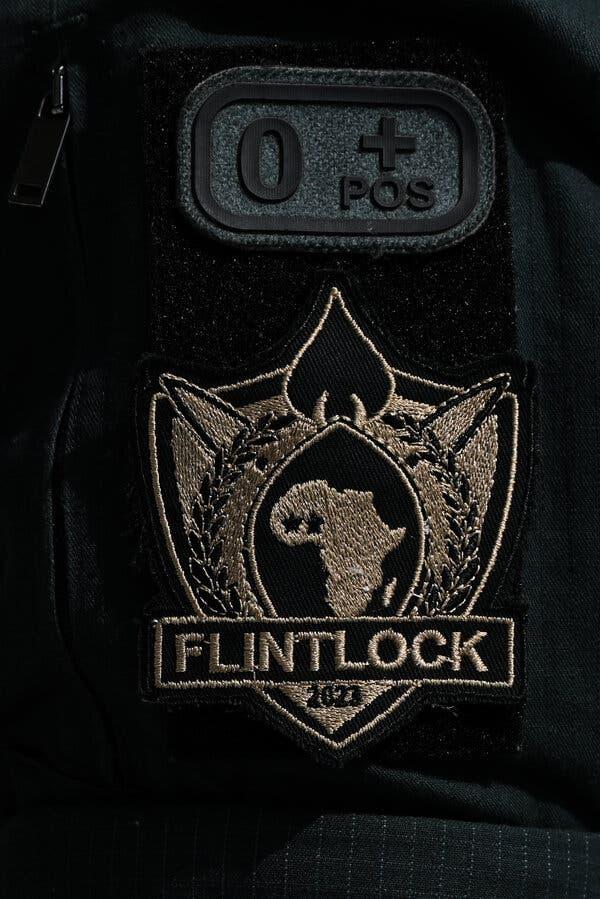
American soldiers from the Texas National Guard also helped to mentor their African counterparts at the joint headquarters in Accra.[2]
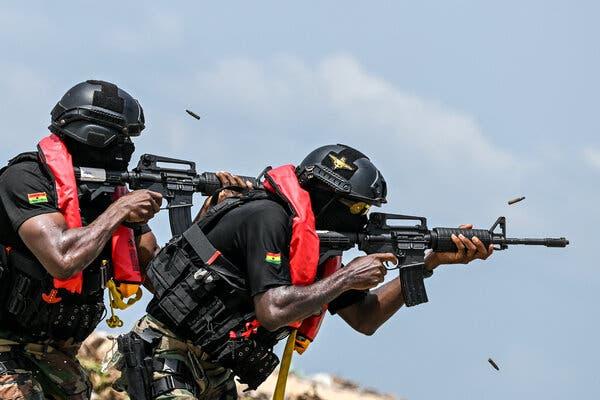
Rear Admiral Milton J. Sands, the commander of U.S. special operations forces in Africa, said that Flintlock was “very much us [the U.S.] in support and partnered shoulder to shoulder with our African partners in the region. We are here, we care about Africa and ultimately our goal is a safe, secure and stable African continent.”[3]
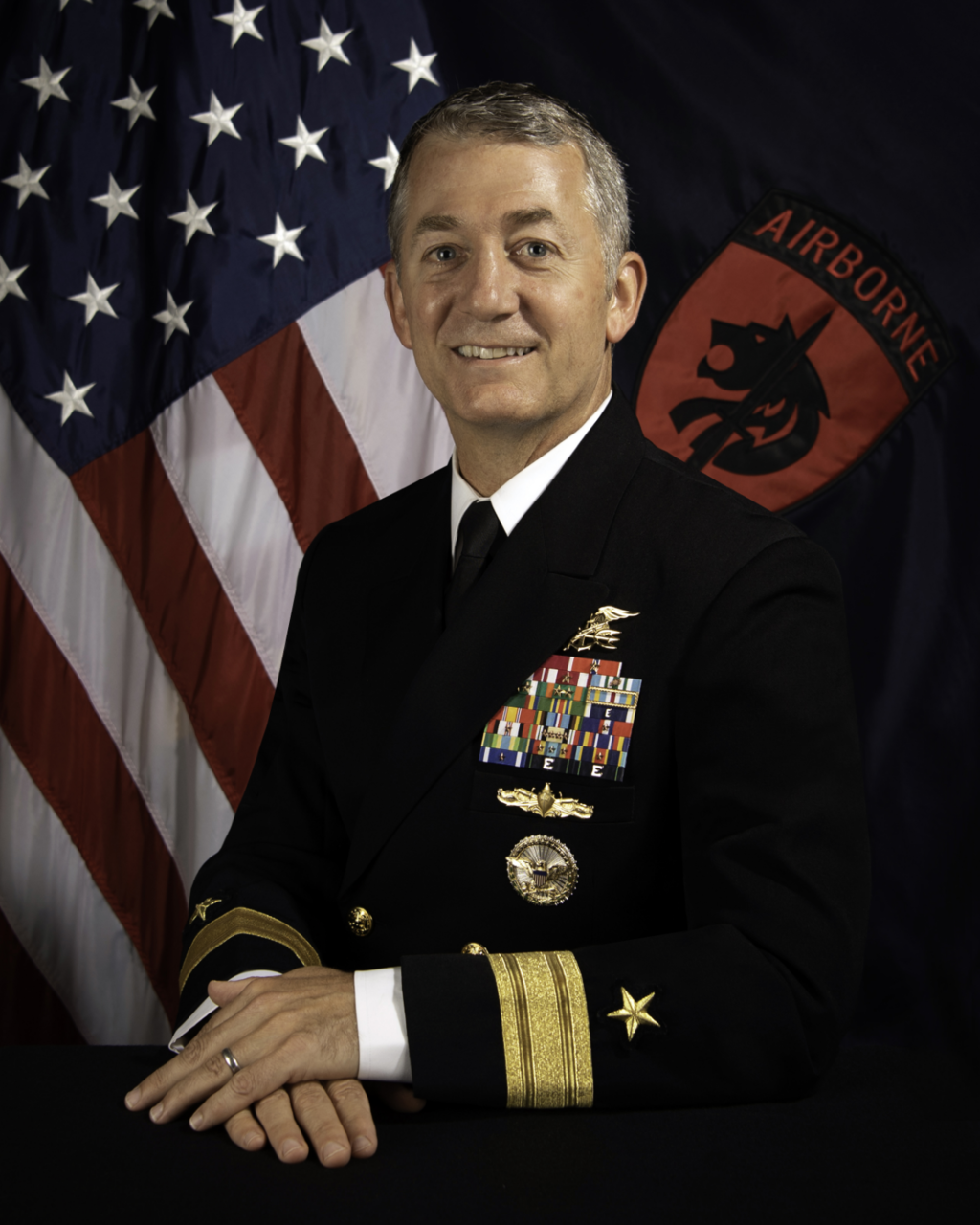
Sands’ claims about a safe African continent was undercut by an earlier paragraph in the Times story noting that Ghanaian army officers in Accra had “pegged the rise in terrorist activity to the 2011 overthrow of Muammar el-Qaddafi and [subsequent] disintegration of the Libyan state…which allowed arms to reach Mali and fall into the hands of Islamist groups” that “flourished across the Sahel states like Burkino Faso, Mauritania, Niger, Nigeria and Senegal.”[4]
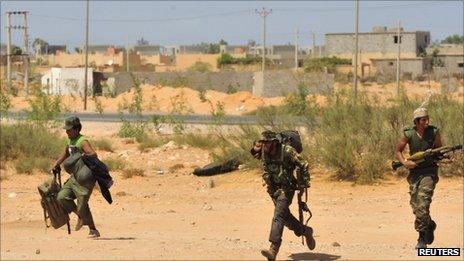
The U.S., along with Great Britain and France, were the key drivers behind Qaddafi’s overthrow in Operation Odyssey Dawn. A key motivating factor had been Qaddafi’s opposition to AFRICOM and refusal to allow AFRICOM to be headquartered in Libya.
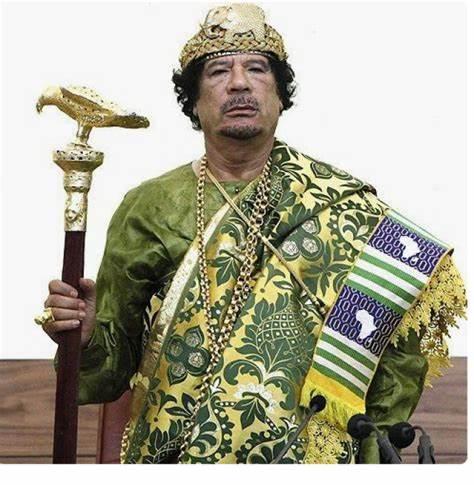
Qaddafi was a Pan-Africanist inspired by the vision of Ghana’s first president, Kwame Nkrumah (1957-1966), a man voted “Africa’s Man of the Millennium” who sought to unify the African continent under socialism.
In Nkrumah’s vision, Africa would be protected from Western imperialists and neo-colonialists by an all-African army that could police the continent’s own internal disputes.
Nkrumah’s 1965 book, Neo-Colonialism: The Last Stage of Imperialism (London: Thomas Nelson & Sons Ltd., 1965), provided a sophisticated framework for understanding how Western capitalist interests were intent on penetrating and exploiting the African continent even after the European countries had relinquished their formal colonies.
This analysis is particularly relevant today where we see an intensified drive to exploit the African continent’s mineral wealth along with growing geo-economic competition between the U.S. and China—which is what lay behind the establishment of AFRICOM in 2007.
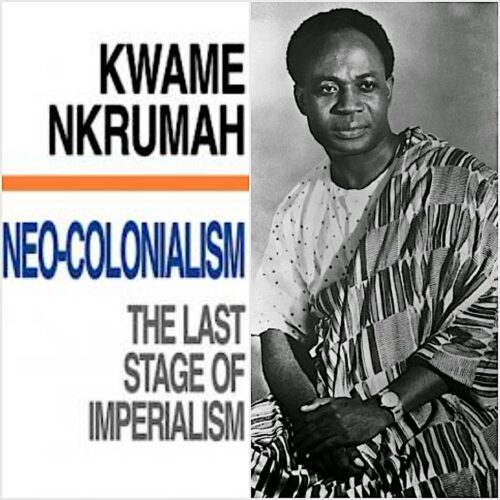
The first step in the achievement of Nkrumah’s pan-Africanist vision was to be the liberation of the continent from colonial and neo-colonial regimes, which Nkrumah was actively supporting as Ghanaian president.
The U.S. State Department complained in a 1962 report that Nkrumah’s Bureau of African Affairs had 100 agents supporting “nationalist and…opposition movements in such African states as the Ivory Coast, Upper Volta, Niger, Togo, Senegal, Cameroon, Liberia and Nigeria with the ultimate goal of assisting more radical elements in gaining power.”[5]
The State Department was worried further that Nkrumah was mounting an offensive against apartheid South Africa, furnishing money and sabotage training to “extremists” bent on overthrowing the white supremacist regime.[6]
CIA-Backed Coup Alters Trajectory of Ghanaian History
Ghana’s current acquiescence to AFRICOM is in many ways a legacy of the CIA-backed coup that ousted Nkrumah in February 1966.[7]
The military regime that succeeded Nkrumah was advised by a Harvard University economist (Gustave Papanek) who recommended the privatization of state-run corporations, and ended Ghanaian support for African revolutionaries.[8]
Robert Komer, a National Security Council staffer and CIA officer who headed the Phoenix operation in Vietnam, called Ghana’s post-coup regime almost “pathetically pro-Western,” while U.S. Ambassador to Ghana Franklin H. Williams considered the coup the “greatest opportunity we have had to date to enhance U.S. policy objectives in Africa.”[9]
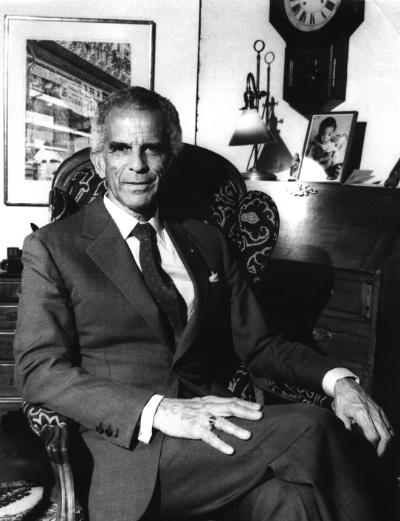
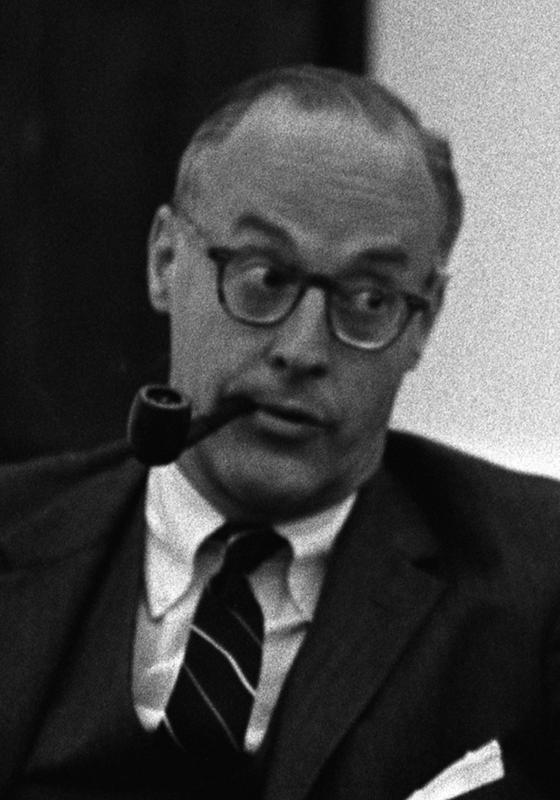
These objectives have reached fulfillment today with the expansion of AFRICOM exercises into Ghana under President Nana Akufo-Addo, who is too weak and visionless to resist.[10]
The country is currently wracked by debt and inflation and desperate for any foreign aid it can get so pays fealty to outside powers like the U.S.[11]
Akufo-Addo’s father, Edward Akufo-Addo, was part of the post-1966 coup government along with three of his uncles, one of whom, J.B. Danquah, played a central role in the CIA-backed coup.
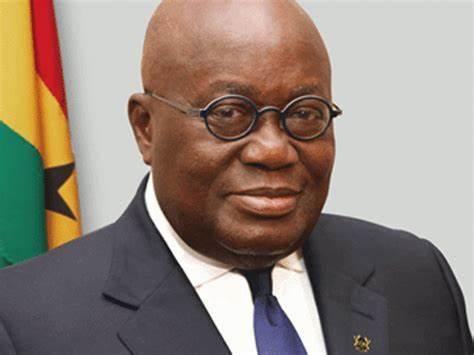
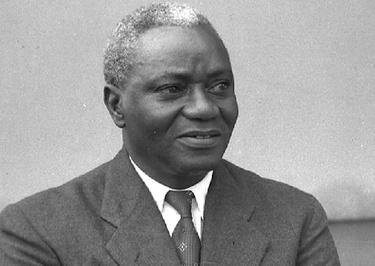
Were Nkrumah alive today, he would be horrified that a descendant of the coup masters who ousted him has allowed a neo-colonialist instrument like AFRICOM to host military exercises on Ghanaian soil.
AFRICOM is the very antithesis of the all-African force that Nkrumah envisioned as a pathway to the liberation of the African continent.
AFRICOM Commander Admits to Training Coup Leaders
An ascendant isolationist wing of the GOP, which opposes military aid to Ukraine, is beginning to raise concerns in Congress about AFRICOM.
On March 24, Matt Gaetz (R-FL), who recently sponsored congressional resolutions to withdraw U.S. troops from Syria and Somalia, grilled AFRICOM commander Michael Langley, getting him to admit that AFRICOM had trained over 50,000 African troops and that at least two of these soldiers had gone on to lead coups (in Guinea and Burkino Faso).
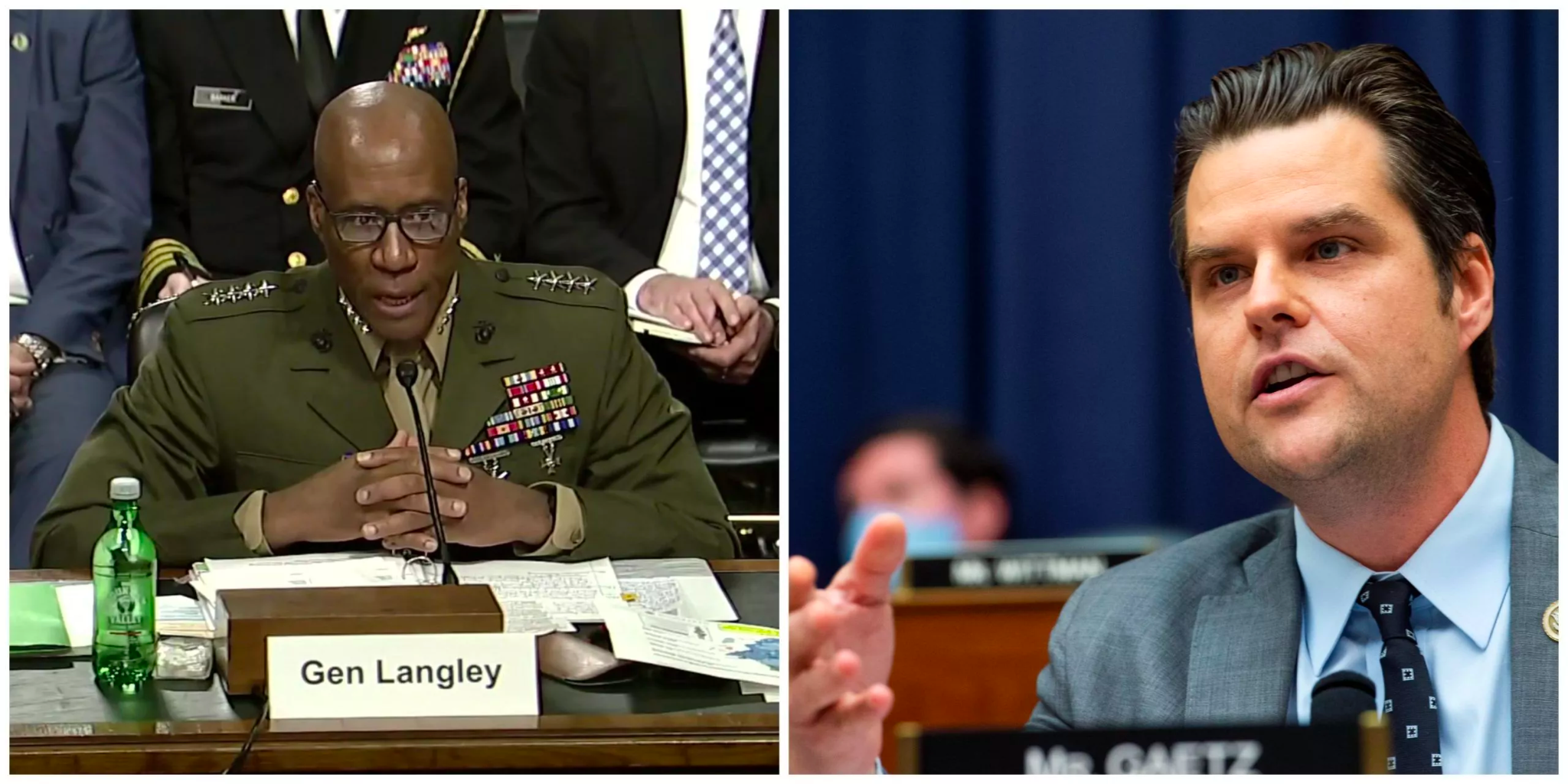
At one point in the exchange, Gaetz held up a photo of Colonel Mamady Doumbouya, who led a 2021 coup in Guinea, with two AFRICOM soldiers.[12]
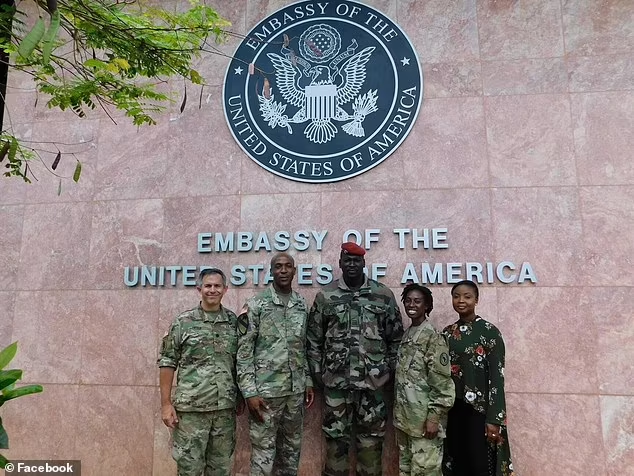
Gaetz also mentioned a 2021 article from The Intercept published by Nick Turse, “Another U.S. Trained Soldier Stages a Coup in West Africa,” which focused on AFRICOM trained Lieutenant Colonel Paul-Henri Sandaogo Damiba, who led a coup in January 2022 that ousted Burkino Faso’s democratically elected president, Roch Marc Christian Kaboré.
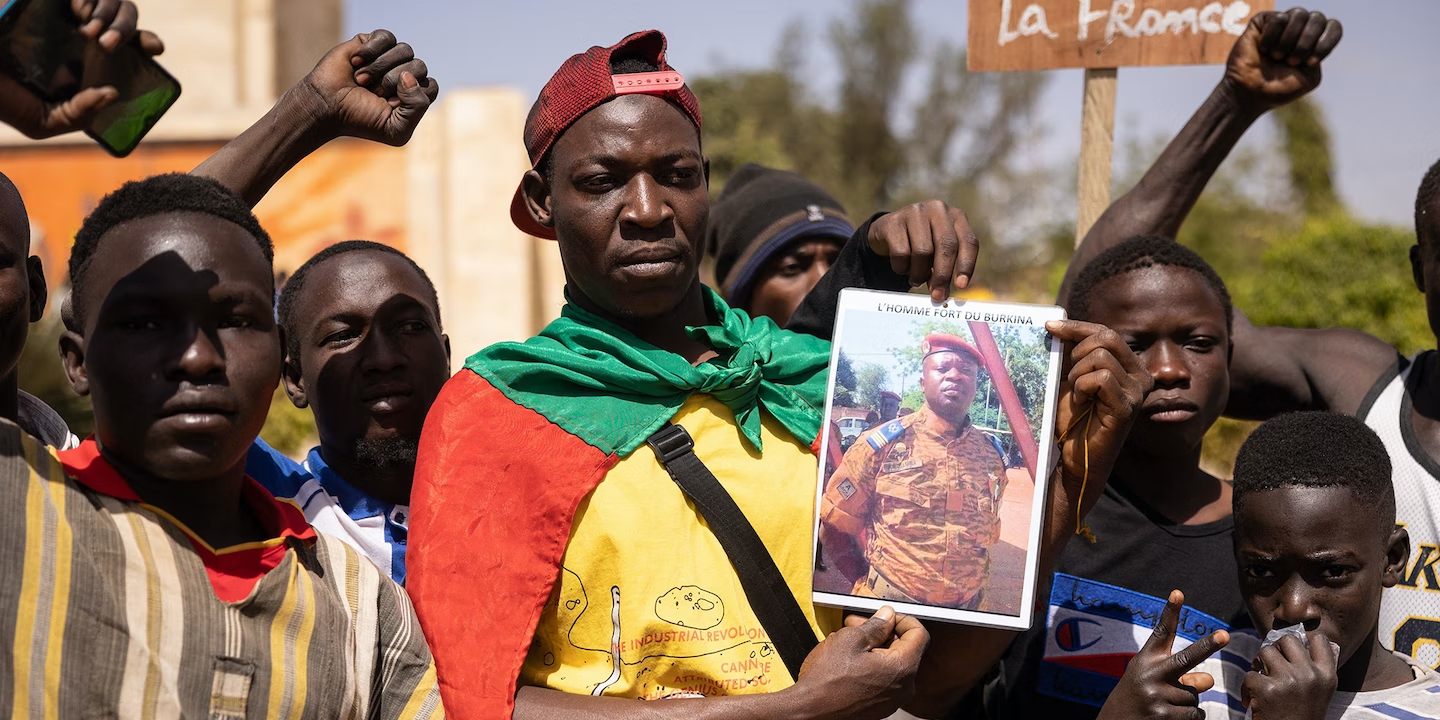
In 2010 and again in 2020, Damiba participated in the Flintlock exercises that this year took place in Ghana. According to Turse, since 2008, U.S.-trained officers have attempted at least nine coups (and succeeded in at least eight) across five West African countries, including Burkina Faso (three times), Guinea, Mali (three times), Mauritania, and the Gambia.
This is exactly what Nkrumah back in his day had warned against and why he wanted an all-Africa trained force.
Kamala Harris: Working to Subvert Nkrumah’s Legacy and That of Her Grandfather
During a visit to Accra on Monday to meet with President Aku-Addo, U.S. Vice President Kamala Harris announced that the U.S. would provide $100 million to Ghana and four other West African countries to help them deal with “violent extremism and instability”—another boon to U.S. arms-makers.
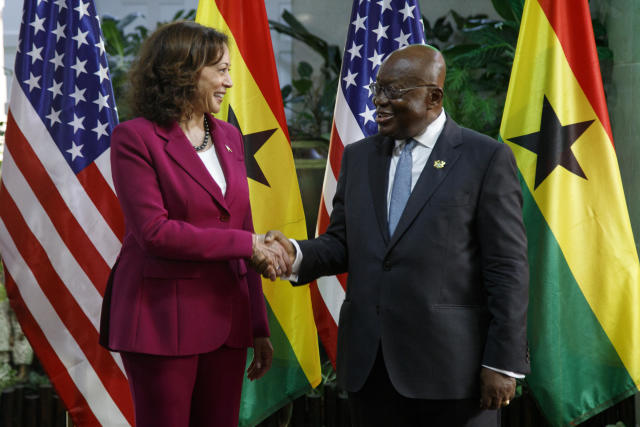
An underlying U.S. objective is to pry Ghana away from China, which since 2019 has been allowed to dig for bauxite ore in Ghana in exchange for multibillion dollar infrastructural investments that include building highways.
The New York Times reported on the irony that as Ms. Harris’ motorcade passed a traffic circle in Accra, a People’s Republic of China placard announcing Beijing’s funding of the rotary’s construction was visible directly behind a poster featuring her and Nana Akufo-Addo.[13]
If he were still alive, Kwame Nkrumah might be weary of Chinese efforts to exploit Ghana and other African countries’ mineral wealth, though Nkrumah admired communist China for its achievements in overturning the pernicious legacy of British neo-colonialism, reclaiming national control over its economy and initiating social progress for its people, as well as for its support for anti-colonial movements and economic development in Ghana and the rest of Africa.
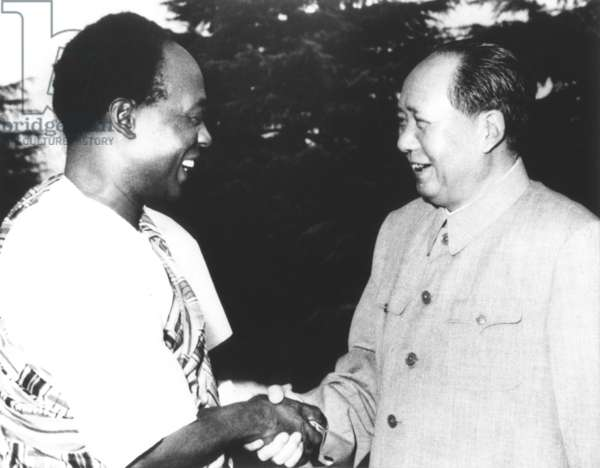
After her visit to Ghana, Harris went to Zambia where her grandfather, P.V. Gopalan, served as an adviser to Zambia’s first President Kenneth Kaunda.[14]
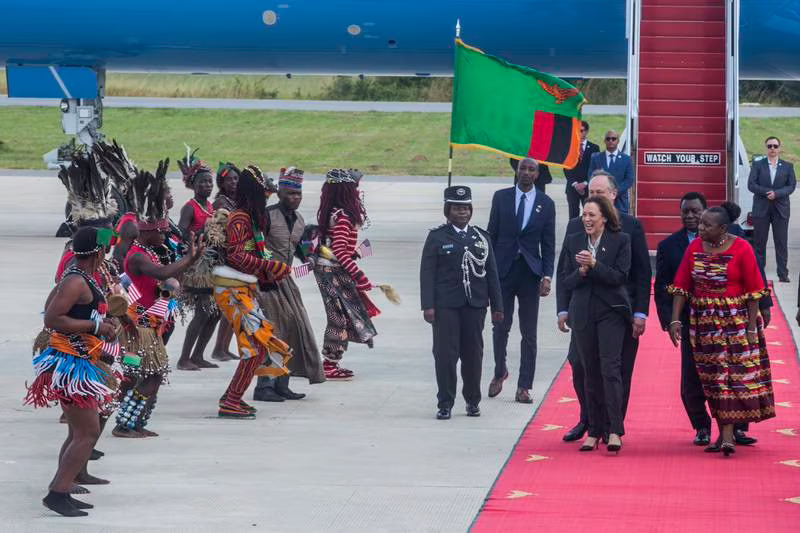
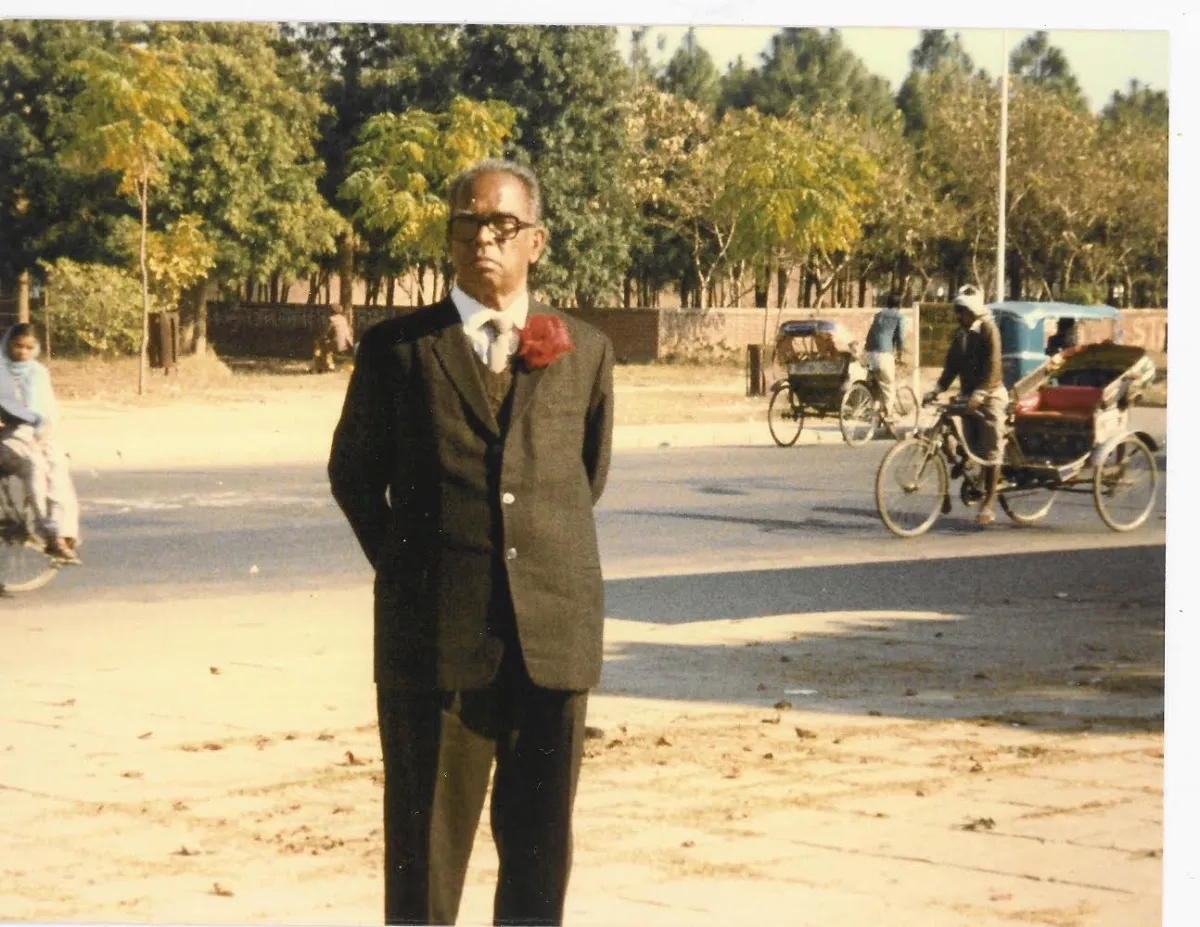
Kaunda was a close ally of Nkrumah who shared a similar worldview and was also a target of a U.S. regime change operation—in his case in the early 1980s.[15]
Kaunda too would have condemned Harris’ agenda in Africa, and function in providing a friendly cover for the interests intent on exploiting Zambia and Africa’s mineral wealth.
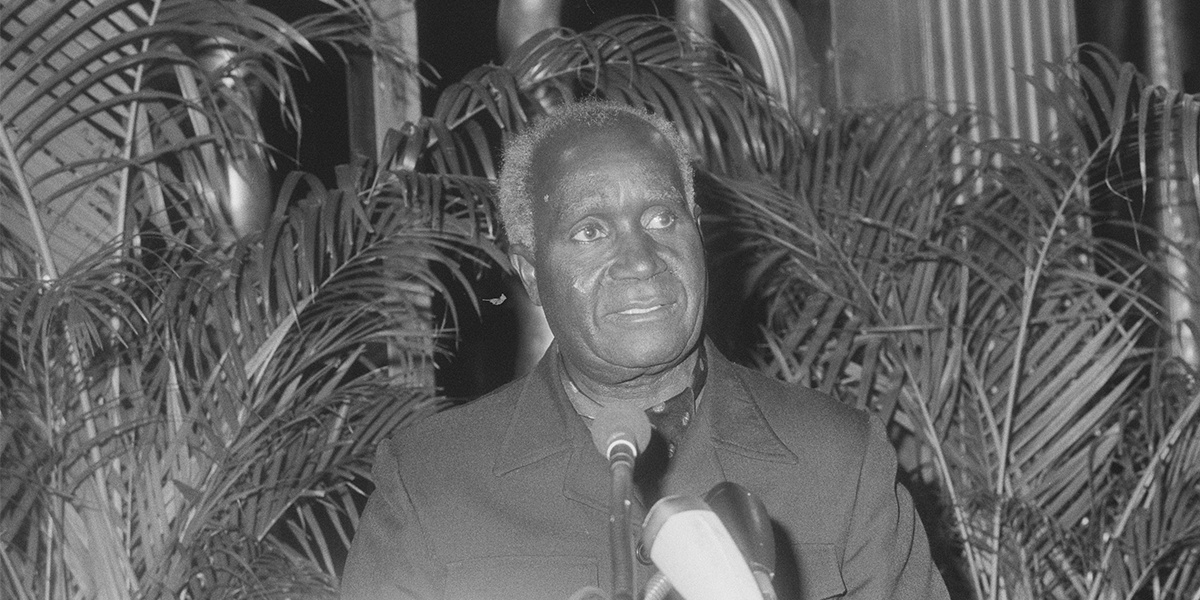
Zambia is currently governed by Hakainde Hachilema, the richest man in the country who is a counterpart of Akufo-Naddo: He has welcomed AFRICOM facilities into Zambia, and supports low taxes in an attempt to lure foreign corporations into Zambia.
This is the opposite approach of Nkrumah and Kaunda who prioritized the development of local industries; pushed for high taxes on foreign corporations to fund robust social programs; were against covert military intervention by white powers, and supported nationalization of major industries so the revenues could be used to help improve the people’s quality of life.
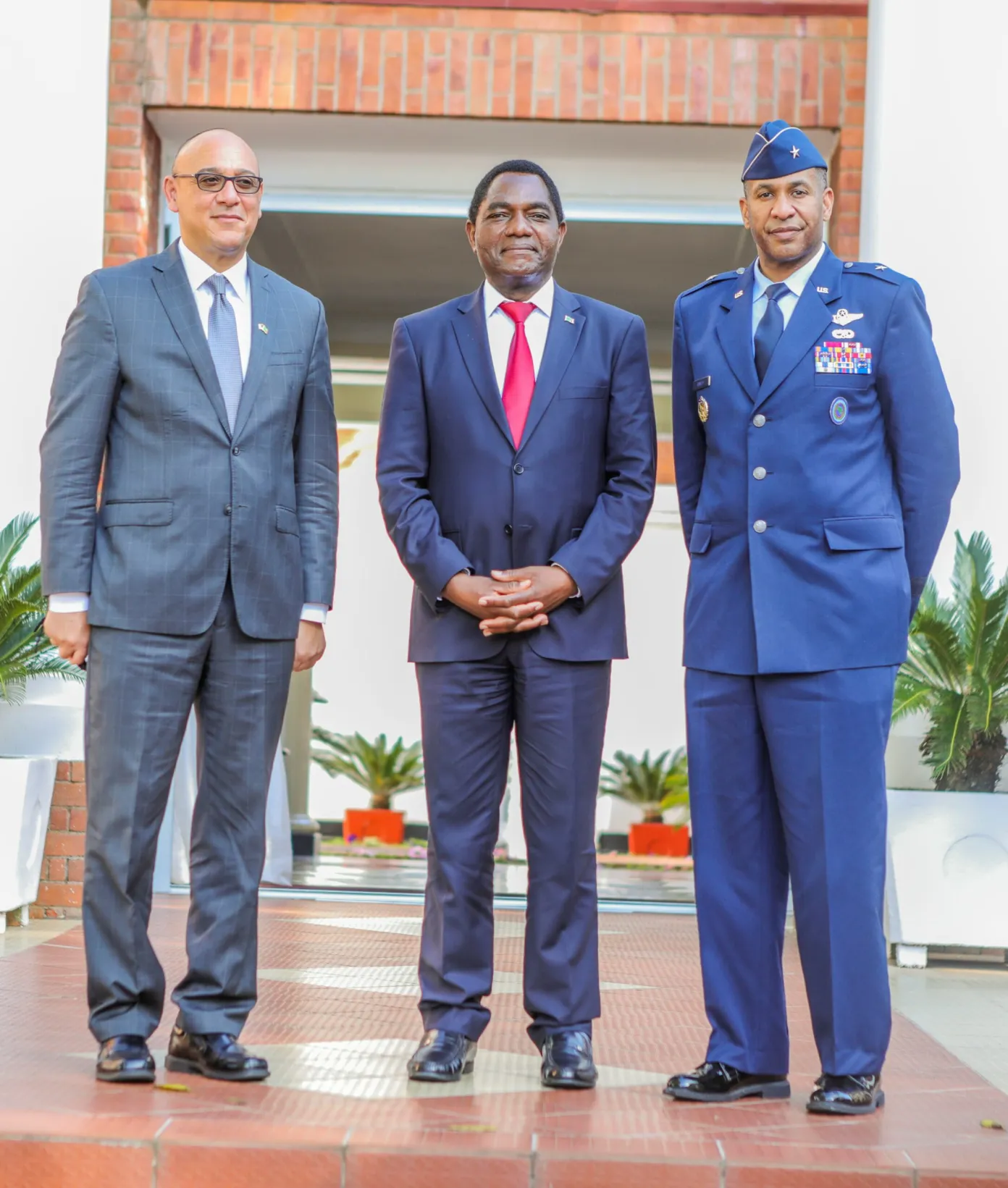
As CovertAction Magazine has previously detailed, the U.S. has growing interest in Zambia because it is a copper producing country—and copper is needed in the manufacture of electric vehicles as well as computers and electronic gadgets.
Goldman Sachs recently released a report, Copper is the New Oil, emphasizing copper’s importance in the transition to a clean energy economy.

It is unlikely under current policies that Zambians will benefit much from the new copper rush–currently Zambia stands as the fifth hungriest nation in the world after the Central African Republic, Chad, Madagascar and Yemen.
At the U.S.-Africa Summit in Washington, D.C. in December, Zambia and DR Congo signed a memorandum that effectively surrendered their supply chain and production of copper and cobalt to American control.[16]
The Socialist Party of Zambia responded to the memo by saying that: “The governments of Zambia and Congo have surrendered the copper and cobalt supply chain and production to American control. And with this capitulation, the hope of a Pan-African-owned and controlled electric car project is buried for generations to come.”[17]
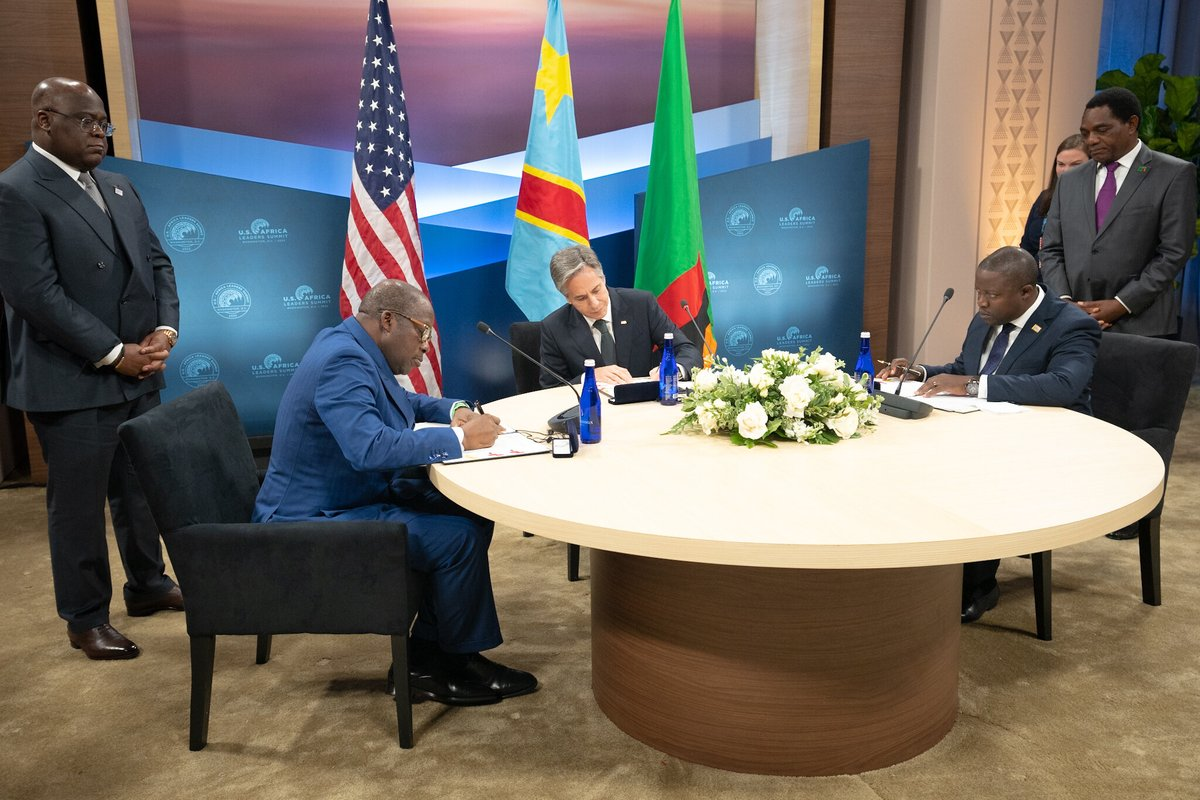
Kwame Nkrumah is likely rolling in his grave about this too, as is Kenneth Kaunda and P.V. Gopalan whose grand-daughter has switched sides to the capitalist exploiters and imperialists in betrayal of her family and people.

-
John Ismay, “Training West Africa to Fight Terrorists by Land and Sea,” The New York Times, March 24, 2023, A4. ↑
-
Idem. ↑
-
Idem. ↑
-
Idem. ↑
-
“Ghanaian Subversives in Africa,” February 9, 1962. For Mac Bundy, State Department Draft Study on Ghana, RG 59, General Records of the Department of State, Records of the Bureau of African Affairs, 1958-1966, box 65, National Archives, College Park, Maryland. ↑
-
Olcott Deming to Mr. Fredericks, “CAS Report on Sabotage in South Africa,” January 11, 1962, RG 59, General Records of the Department of State, Records of the Bureau of African Affairs, 1958-1966, box 50, National Archives, College Park, Maryland. Joe Matthews was one of the “extremists” who received $10,000 from Ghana for anti-government operations in Basutoland. ↑
-
For information on this coup and U.S. involvement, see John Stockwell, In Search of Enemies: A CIA Story (New York: W.W. Norton, 1984); Kwame Nkrumah, Dark Days in Ghana (New York: International Publishers, 1968); Kwesi Kwaa Prah, The Social Background of Coup D’état (Brazil, Indonesia, Ghana). Center for Advanced Studies of University of Amsterdam, 1973). Fearing his close ties to Congolese Prime Minister Patrice Lumumba, who was also a Pan-Africanist, the State Department had pressured for withholding of loans to Ghana in the early 1960s and worked to lower world cocoa prices through stockpiling in order to deprive Nkrumah of foreign exchange. In September 1961, U.S. ambassador Francis Russell at the instigation of the CIA and diamond magnate Maurice Templesman who had investments in the mining sector, sponsored an abortive coup by pro-western finance minister Komla Gbedemah. The British press later reported that 40 CIA officers [including Thomas J. Gunning, Edward Foy, both former army intelligence officers, William B. Edmundson and Ms. Stella Davis] operated out of the U.S. Embassy “distributing largesse among President Nkrumah’s secret adversaries,” and that their work “was fully rewarded.” John W. Harrley, a main coup plotter, was “an excellent embassy contact for important police matters,” who profited from diamond smuggling, and participated in the coup to protect himself from prosecution. ↑
-
The cancellation of cocoa deals with Eastern bloc countries by the CIA installed post-coup government made the commodity more widely available for sale to Western markets. ↑
-
“New Decree Gives Police Powers to Army Officers,” American embassy Accra, December 25, 1966; American embassy Accra, March 26, 1966, RG 59, General Records of the Department of State, Records of the Bureau of African Affairs, 1958-1966, box 2236, National Archives, College Park, Maryland; Richard Eder, “U.S. Officials Show No Regret Over the Removal of Nkrumah,” The New York Times, February 25, 1966. Williams had been an NAACP lawyer prominent in the civil rights movement who was appointed by John F. Kennedy to assist Sergeant Shriver in the development of the Peace Corps. ↑
-
Akufo-Addo has wanted to diversify Ghana’s economy away from dependence on cocoa and oil but has aimed to lower taxes to attract more foreign investment to Ghana—which Nkrumah viewed as being predatory. ↑
-
Ghana appeased the U.S. by voting to condemn at the UN Russia’s allegedly unprovoked invasion of Ukraine, when many African nations refused to do so and abstained in the vote. ↑
-
Doumbouya had served in Afghanistan. He was also trained by the Israelis and was a French legionnaire. ↑
-
Zolan Kanno-Youngs and Abdi Latif Dahir, “Harris Looks to Deepen U.S. Bond with Africa, Promising a New Path,” The New York Times, March 28, 2023, A6. ↑
-
Idem. Gopalan had worked as an Indian civil servant. ↑
-
The U.S. ultimately supported Kaunda’s rival, Frederick Chiluba, who ushered in a disastrous era of neoliberalism in Zambia during his presidency from 1991-2002. ↑
-
One of the biggest deals announced at the summit was for the U.S. based Kobold Metals, which agreed to invest $150 million into Zambia’s mining sector. ↑
-
Socialist Party leader Fred M’membe referred to Hachilema as a “puppet of foreign mining firms and the West.” David Kaunda wrote in response to an article in The Lusaka Times about the U.S.-Africa Summit: “Americans are criminals busy plotting on how steal minerals from Zambia, It’s a pity we have a puppet…who thinks of what is best for his friends and not the people of Zambia… Ama rubbish.
1.No medicine in hospitals.
16-21 pregnant mothers die per week this is according to the least report on ministry of health.
2. Farmers haven’t been given inputs meaning the cost of mealie meal will go up.
3. Fuel is expensive which is at K 27.00 per litre.
4. Electricity tariffs have been increased.
5. Democracy is under threat.
6. No good governance.
7. Mining companies are on tax holiday meaning Zambia is losing out 3.7 billion dollars per year.
8. Lying is the nature of upnd [UPND–governing party headed by HAchilema] which is extremely saddening.
9. No direction.
10. Load shedding after name call the former president names ↑
CovertAction Magazine is made possible by subscriptions, orders and donations from readers like you.
Blow the Whistle on U.S. Imperialism
Click the whistle and donate
When you donate to CovertAction Magazine, you are supporting investigative journalism. Your contributions go directly to supporting the development, production, editing, and dissemination of the Magazine.
CovertAction Magazine does not receive corporate or government sponsorship. Yet, we hold a steadfast commitment to providing compensation for writers, editorial and technical support. Your support helps facilitate this compensation as well as increase the caliber of this work.
Please make a donation by clicking on the donate logo above and enter the amount and your credit or debit card information.
CovertAction Institute, Inc. (CAI) is a 501(c)(3) non-profit organization and your gift is tax-deductible for federal income purposes. CAI’s tax-exempt ID number is 87-2461683.
We sincerely thank you for your support.
Disclaimer: The contents of this article are the sole responsibility of the author(s). CovertAction Institute, Inc. (CAI), including its Board of Directors (BD), Editorial Board (EB), Advisory Board (AB), staff, volunteers and its projects (including CovertAction Magazine) are not responsible for any inaccurate or incorrect statement in this article. This article also does not necessarily represent the views the BD, the EB, the AB, staff, volunteers, or any members of its projects.
Differing viewpoints: CAM publishes articles with differing viewpoints in an effort to nurture vibrant debate and thoughtful critical analysis. Feel free to comment on the articles in the comment section and/or send your letters to the Editors, which we will publish in the Letters column.
Copyrighted Material: This web site may contain copyrighted material the use of which has not always been specifically authorized by the copyright owner. As a not-for-profit charitable organization incorporated in the State of New York, we are making such material available in an effort to advance the understanding of humanity’s problems and hopefully to help find solutions for those problems. We believe this constitutes a ‘fair use’ of any such copyrighted material as provided for in section 107 of the US Copyright Law. You can read more about ‘fair use’ and US Copyright Law at the Legal Information Institute of Cornell Law School.
Republishing: CovertAction Magazine (CAM) grants permission to cross-post CAM articles on not-for-profit community internet sites as long as the source is acknowledged together with a hyperlink to the original CovertAction Magazine article. Also, kindly let us know at info@CovertActionMagazine.com. For publication of CAM articles in print or other forms including commercial internet sites, contact: info@CovertActionMagazine.com.
By using this site, you agree to these terms above.
About the Author

Jeremy Kuzmarov holds a Ph.D. in American history from Brandeis University and has taught at numerous colleges across the United States. He is regularly sought out as an expert on U.S. history and politics for radio and TV programs and co-hosts a radio show on New York Public Radio and on Progressive Radio News Network called “Uncontrolled Opposition.”
He is Managing Editor of CovertAction Magazine and is the author of six books on U.S. foreign policy, including Obama’s Unending Wars (Clarity Press, 2019), The Russians Are Coming, Again, with John Marciano (Monthly Review Press, 2018), Warmonger. How Clinton’s Malign Foreign Policy Launched the U.S. Trajectory From Bush II to Biden (Clarity Press, 2023); and with Dan Kovalik, Syria: Anatomy of Regime Change (Baraka Books, 2025).
Besides these books, Kuzmarov has published hundreds of articles and contributed to numerous edited volumes, including one in the prestigious Oxford History of Counterinsurgency .
He can be reached at jkuzmarov2@gmail.com and found on substack here.

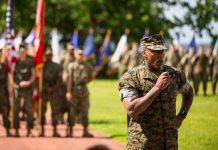

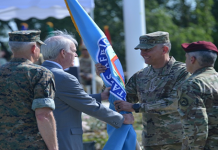

Interesting in view of the recent visit of LA Mayor Karen Bass to Ghana to attend the inauguration of the newly elected President while the fires are ocurring . Rightist narratives point to her as some sort of Communist because she was part of the Venceremos Brigade but whatever the case she is now serving the interest of US imperialism in Africa.